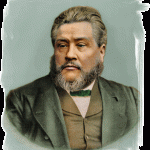 Dr. R. C. Sproul answers this question in an article entitled not its nomina, that determines what it is. In different languages, the same flower is known by different names, but it is still the same flower.
Dr. R. C. Sproul answers this question in an article entitled not its nomina, that determines what it is. In different languages, the same flower is known by different names, but it is still the same flower.
When we apply this idea to theology things get a bit more complicated. Indeed the rose adage has been transferred indiscriminately to religion in order to create a theological concept. The concept is: “God by any other name is still God.” Now certainly, it is true that the immutable essence of God is not changed by the alteration of His name. In English, we may say “God,” in German “Gott,” in Greek “Theos,” yet all these names or words are used to point to the same Deity.
Beyond this, however, things get murky. It is a quantum leap to go from saying that God by any other name is still God, to saying that all the great religions in the world believe in the same Being though they call Him different names.
This irrational leap is prodded by the popular analogy of the mountain. This analogy notes that their are many roads up the mountain. Some progress on a more direct route, while others wind about on more circuitous roads, but sooner or later they all arrive at the same place, at the top of the mountain.
So, it is argued, there are many roads that lead to God. They may be different routes but they all end up in the same place—with God Himself. That is, the differing roads indicate no difference in the God who is found. God’s being, then, becomes the lowest (or highest) common denominator of all religions.
The road analogy is buttressed by the democratic truism that all religions are equal under the law. The fallacy in this axiom is thinking that just because all religions enjoy equal tolerance under the civil law, they therefore are all equally valid. That might be true if there were no God, but then it would be better to say that with respect to their ultimate affirmation they are all equally invalid.
To argue that all religions ultimately believe in the same God is the quintessential nonsense statement. Even a cursory examination of the content of different religions reveals this. The nature of the Canaanite deity Baal differs sharply from the nature of the biblical God. They are not remotely the same. This sharp distinction is also seen when comparing the God of Israel with the gods and goddesses of Roman, Greek, or Norse mythology.
The problem becomes even more complex when we consider that sometimes different religions use the same name for God while their views of the nature of God differ radically. Consider, for example, the religion of Mormonism. It claims to embrace the Bible (as well as the Book of Mormon, Pearl of Great Price, and Doctrine of Covenants) and professes belief in the God of the Bible as well as the biblical Christ. Mormons call themselves The Church of Jesus Christ of Latter Day Saints. Yet historic Christianity does not accept the Mormon religion as a branch or denomination of Christianity. Why? Because the Mormon view of the nature of God and of Christ differs sharply at essential points of faith. For example, Mormonism categorically rejects the full deity of Christ. Christ is said to be pre-existent, but not eternal. He is highly exalted—indeed revered—but He remains a creature, not Creator, in Mormon theology.
What about Islam? Islam is one of the largest religions in the world. In the city of Jerusalem, the Dome of the Rock is displayed as one of the most beautiful sacred shrines on the planet. Islam claims to embrace the God of the Old Testament. It holds the biblical patriarchs in high esteem and even accords a certain respect to Jesus as a great prophet, but He pales in significance to Mohammed, who is the supreme prophet in the credo: “Allah is God and Mohammed is His Prophet.”
This forces the question, “Is Allah the same God as Yahweh, only under a different name?” Or we could pose the question in a different way: “Is Allah the God of the Bible?”
The answer to these questions depends first of all on the answer to the question: “Is the God of Christianity the God in the Old Testament, that is, Yahweh?” If the Being who is called “God” in the New Testament is the God called “Yahweh” in the Old Testament, then, manifestly, the God of Islam is not the God of the Bible. As Yahweh continues to reveal Himself through the ministry of Christ and the apostles, it is clear Yahweh is very different from Allah. We cannot legitimately harmonize the theology of Christianity with the theology of Islam. They differ sharply at essential points.
The most obvious difference is with respect to the Trinity. Christians confess the triune nature of God. The language “nature” here may be confusing inasmuch as the Christian doctrine of God affirms that God is one in essence (or nature) and three in person. This means that the distinction of persons in the Godhead is not a distinction of essence, which would leave us with three gods. For precision, we must walk the razor’s edge and say that the distinctions of persons in the Godhead is an essential distinction, yet not a distinction of essence. God is one in being (or essence), but it is important to note the personal distinctions of God, because the Bible goes to great lengths to do so.
Here is a crucial difference between the Muslim understanding of God and the Christian concept: The term “god” does not refer to the same being in each religion because Allah is clearly not triune. For Islam, there is no second person of the Trinity who becomes incarnate and effects our salvation and no third person of the Trinity who applies that redemption to us. So we are left with radically different views of God via the person and work of Christ and the person and work of the Holy Spirit.
There are two other vital differences between Christianity and Islam. Islam has no Cross and no resurrection, articles of the faith that are of the essence of Christianity and of ultimate importance to the plan of the God of the Bible. Mohammed made no atonement for our sins when he died. And when he died, he stayed dead.
There are other crucial differences we could explore of how God is understood in orthodox Christianity and how He is understood in orthodox Islam. It is enough for now to say that Allah and Yahweh are not the same. One is the living God; the other is an idol.

 “[The] term ‘decide’ has always seemed to me to be quite wrong. A sinner does not ‘decide’ for Christ; the sinner ‘flies’ to Christ in utter helplessness and despair saying — Foul, I to the fountain fly, Wash me, Saviour, or I die. No man truly comes to Christ unless he flies to Him as his only refuge and hope, his only way of escape from the accusations of conscience and the condemnation of God’s holy law. Nothing else is satisfactory. If a man says that having thought about the matter and having considered all sides he has on the whole decided for Christ, and if he has done so without any emotion or feeling, I cannot regard him as a man who has been regenerated. The convicted sinner no more ‘decides’ for Christ than the poor drowning man ‘decides’ to take hold of that rope that is thrown to him and suddenly provides him with the only means of escape. The term is entirely inappropriate.”
“[The] term ‘decide’ has always seemed to me to be quite wrong. A sinner does not ‘decide’ for Christ; the sinner ‘flies’ to Christ in utter helplessness and despair saying — Foul, I to the fountain fly, Wash me, Saviour, or I die. No man truly comes to Christ unless he flies to Him as his only refuge and hope, his only way of escape from the accusations of conscience and the condemnation of God’s holy law. Nothing else is satisfactory. If a man says that having thought about the matter and having considered all sides he has on the whole decided for Christ, and if he has done so without any emotion or feeling, I cannot regard him as a man who has been regenerated. The convicted sinner no more ‘decides’ for Christ than the poor drowning man ‘decides’ to take hold of that rope that is thrown to him and suddenly provides him with the only means of escape. The term is entirely inappropriate.” 2013 it will have been 121 years since the great preacher, Charles Haddon Spurgeon passed away. In memory of him I bring to you 32 things you might not know about Charles Spurgeon.
2013 it will have been 121 years since the great preacher, Charles Haddon Spurgeon passed away. In memory of him I bring to you 32 things you might not know about Charles Spurgeon.